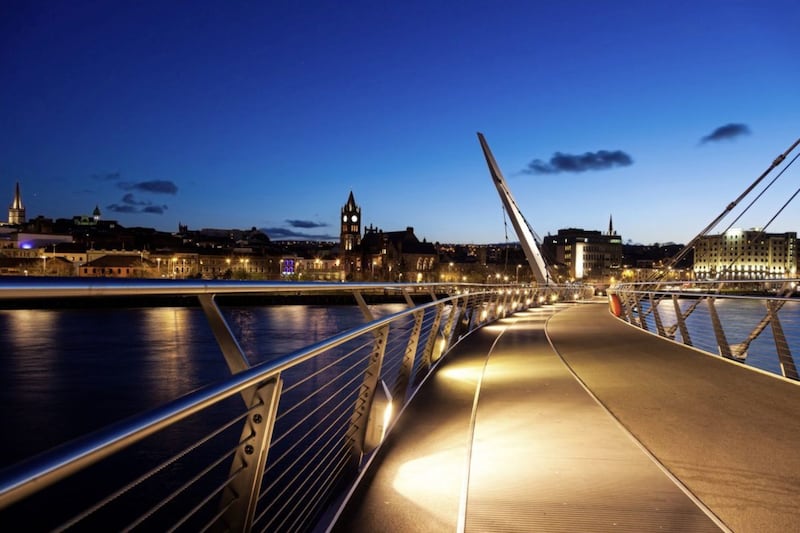AS unionist criticism of the Northern Ireland Protocol has intensified, there has been concern that those not committed to peaceful and democratic means would manifest their opposition in a sinister fashion.
There were undercurrents of that in last week's Loyalist Communities Council letter and now there are further worrying developments with the appearance of threatening posters and graffiti.
These include a placard which has appeared in a number of towns depicting a masked man holding a gun and bearing the message: "Our forefathers fought for our freedom and rights. No border in the sea or we continue the fight."
Having raised fears over the protocol, unionist politicians have a responsibility to defuse tensions.
The DUP has a particular role to play, given its central role in facilitating Brexit and supporting Boris Johnson, who ultimately authored the deal.
The protocol has undoubtedly created difficulties. But these are a direct consequence of Brexit itself, and the correct way to resolve these is through political dialogue.
While an inferior arrangement to being in the EU, it must also be acknowledged that there are opportunities as a result of Northern Ireland's unique post-Brexit status; it would be better if all political representatives turned their attention to maximising these.
Yet more evidence of the scale of the DUP's Brexit folly in championing Mr Johnson has emerged from Denzil Davidson, an adviser on Europe to Theresa May while she was prime minister.
In a wide-ranging interview with the think tank UK in a Changing Europe for its 'Brexit Witness Archive' series, Mr Davidson said that he was not surprised at Mr Johnson's 'un-unionist' approach to the north: "... I knew that Northern Ireland was not a priority for him, and that he was willing to cut them loose."
Conservative lack of understanding about the north was emphasised by Jacob Rees-Mogg. He said this week that he disputes the idea that the UK has "no selfish strategic interest in Northern Ireland".
This challenges a tenet of the approach to the peace process developed by John Major and his Secretary of State Peter Brooke in 1990, and which eventually led to the Good Friday Agreement.
Mr Rees-Mogg has made similar remarks before, including at a DUP dinner in Ballymena in 2019.
On that occasion he said if Brexit was delivered it would be thanks to the DUP; given how events have played out, the DUP will not enjoy being reminded of that endorsement.






